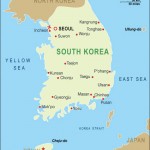– It’s odd the things you find when you are off looking for something else.  I came across the piece, below, this afternoon.  It was one of the tens of thousands of files I have on my system dating back for quite a few years.  Its title was “27Jun” and it was in a folder labeled 2001.
– I’ve long since forgotten why I wrote it.  Back then, I wasn’t Blogging nor was I writing for the local newspaper.
– But I remember what was going on then. I’d been having intense lunches and conversations with a friend of mine from Motorola where I worked for several years. Many important insights that I still treasure date from those lunches and conversations.
= = = = = = = = = = = = = * * * = = = = = = = = = = = =
I’ve been thinking about incremental change and sudden change. I was talking at lunch recently with a friend about politics and the kinds of changes that will be needed if the human race is to have any hope of establishing a steady state balance with the biosphere before we make a complete mess of the natural world.
In our conversation, I was pushing for the sudden change model and, as an example of the deficiency of the incremental method, I cited what I believe happens to governments over time. I said that even if governments, like the US government, could be restarted so that they are free of the baggage of historical precedence, they will build up a new and terrible tangle of complexity again over time. This happens because in an incremental, from the inside, change based system, each attempt to remedy a perceived fault generally results in another ad-hoc addition to the rules or constraints on the system.
The US tax code, I said, is a good example. The usual method of improving it is to add more rules to amend loopholes or to provide special case exceptions to deal with fundamental oversights at a deeper level. Sometimes changes are made just to subvert the basic intent of the law for a sufficiently powerful special interest group. With something like the Tax Code, it is rare when any of the existing structure is taken down. Too many folks have a vested interest in maintaining the existing structure as it is since they’ve learned, over time, how to work the system in that form.
The net result in such systems is that they effectively become less and less malleable over time as their complexity and gridlock increase. Unfortunately, in a world where the survival of the fittest is equated to adaptability, this is generally not a good thing.
I said that I had read somewhere that only wars and revolutions historically free the logjams governmental systems get into. These events shattering the existing systems and power structures. Marx’s Historical Dialectic concept dealt with these cathartic reorganizations.
I concluded that the best way therefore to focus on meaningful large-scale change was to not try to solve the problems from within. I said that if the overall design of a city’s layout is bad, you can put up traffic lights and paint new crosswalks as much as you like and you’re only deferring and denying the real problem. The real solution, as painful as it may be, is that some buildings and roads may need to be moved or destroyed.
I was satisfied with my arguments at lunch. It wasn’t until later when I looked at it all again that I began to have some doubts.
Often, when I’m trying to work something like this out, I try to see how the issue plays out in nature. In this case, I asked myself what does evolutionary biology reveal about the applicability of the incremental and sudden change methods. The insights I got surprised me.
Biological evolution is a system under continual pressure to change and adapt. Other animals learn a new trick and now your species has to come up with a counter trick or perish. Global weather patterns change and suddenly your species has to deal with significantly hotter or colder temperatures or perish. I asked myself, does nature make her changes incrementally or suddenly; does she work from within the system or from without.
And the answer I saw, was that she clearly, albeit unconsciously, works from within using the incremental model. For example, our DNA is the result of a string of incremental changes several billion years long. Biological evolution is a bit like what archaeologists find when they dig up ancient city sites. Layer after layer built one atop the other. What went before becomes the foundation for what comes after. And it isn’t that the old is replaced by the new. Rather, the old remains and becomes part of the new.  There’s a pithy phrase from a German Biologist named Ernst Heinrich Haeckel that fits here – “Ontogeny recapitulates phylogeny”. That’s a mouthful but what it encapsulates is the recognition that as a fetus grows, it appears to pass through all of the stages of previous evolution in rapid succession. In other words, you can see the overlays of mammalian development atop reptilian development atop amphibious development and on and on back through our entire evolutionary history.
There’s a pithy phrase from a German Biologist named Ernst Heinrich Haeckel that fits here – “Ontogeny recapitulates phylogeny”. That’s a mouthful but what it encapsulates is the recognition that as a fetus grows, it appears to pass through all of the stages of previous evolution in rapid succession. In other words, you can see the overlays of mammalian development atop reptilian development atop amphibious development and on and on back through our entire evolutionary history.
You see, it isn’t as if nature one day sweeps her arm across the table and tosses the entire reptilian DNA off to the side and says, “Now I’m going to put together a DNA structure to form a Mammalian animal.” No, the change from the reptilian to the mammalian form was a gradual and incremental change. New genes and functions, which evolved through mutation and which underwent the weeding of Natural Selection proved fitter than what went before. At the same time, other genes functionally turned off or degraded without consequence.
One of the things that evolutionary biologists are finding now that the human genome is being mapped is that there is a lot of DNA that apparently does nothing. I believe I recall that in some chromosomes, the unused or inactive portion approaches 50%. Just like the ancient cities, the old is discarded and becomes, in part, the foundation for what is built atop it.
Now. someone might observe, animals do go extinct, don’t they? Yes, each line of animals, or species if you will, is an experiment in competition with the other lines, just as each human government is an experiment in competition with other governments.
A famous biologist (R.A Fischer, I think) once said, and I have to paraphrase here, that “The better adapted an organism is to a specific environment, the less adaptable it is to changes in its environment.” Think of the Giraffe and what will happen to it if the tall trees and savanna it depends on disappear due to global climate. Or think of the Panda Bear that eats nothing but the leaves of a single tree; the Eucalyptus and how vulnerable that mmakes the Panda as a species. Conversely, consider why some animals are so successful. The rat and the cockroach, for example, because they are evolutionary pragmatists prepared to fit into whatever niche is available rather than depending on a specific set of circumstances. Ask yourself, between the anteater’s nose and the opposable thumb, which will better survive unexpected changes in their environments.
Societies and nations can suffer from overspecialization as well. Consider a system that overly focuses on a social ideal like Communism with its creed, “To each according to his need and from each according to their ability.” For such societies to flourish, the people who populate them need to overcome their all too human tendencies to look out for themselves and their families first and follow the ideals of the state – and as the general demise of Communism has shown, that just wasn’t in the cards.
Consider another example of social or national overspecialization called Capitalism. I.e., that we should work to create and concentrate wealth. This is the exact opposite of Communism. In this system, it is good to look out for you and yours. Capitalism works very well because it plays to the natural tendencies of humans who are, after all animals still mostly in the grip of evolutionary competition. Â A competition that says you must dominate your niche so that you can propagate your genes. We call it by fancier names but it is just a higher level expression of the same basic drives.
 So, how is Capitalism overspecialized? Well, because like boxes one within the other, there are multiple games afoot here. Capitalism might dominate the other forms of social or governmental organization because it most closely complements our natural animal drives but at some point the incessant consumption of natural resources to create wealth will collide with the simple fact that we live on a planet of finite size with finite resources. At that point our overspecialization in the Capitalist life-style, always pushing for the creation of wealth, will be seen for what it is and it will become incumbent on us to reorganize our priorities and give up this specialization – or perish (or at least undergo a severe die-back).
So, how is Capitalism overspecialized? Well, because like boxes one within the other, there are multiple games afoot here. Capitalism might dominate the other forms of social or governmental organization because it most closely complements our natural animal drives but at some point the incessant consumption of natural resources to create wealth will collide with the simple fact that we live on a planet of finite size with finite resources. At that point our overspecialization in the Capitalist life-style, always pushing for the creation of wealth, will be seen for what it is and it will become incumbent on us to reorganize our priorities and give up this specialization – or perish (or at least undergo a severe die-back).
Capitalism works only so long as there are still sufficient unused resources to plow through. The giraffe will survive so long as the tall tree and the savanna are there.
Capitalism is a one-trick pony. It knows how to use natural resources to create wealth. Because there are still more resources to use, it hasn’t yet encountered the consequences of its overspecialization.
I said a moment ago that there are other games afoot here. Out fundamental biological imperative, which is to survive, will be imperiled when we begin to run out of resources to fund our growth. When Capitalism finally encounters the finite limits of the planet and its resources, it will become apparent to all that we have to reorganize our priorities to come into a steady-state balance with whatever remains of the natural environment – or die.
One other remark before I return to the original theme I began on. I said that biological evolution works from within incrementally. That is true. And, left on her own, this is the only way nature has available to her. She has no consciousness with which to direct the evolutionary process or with which to consider her game plan. She cannot, therefore, effect wide reaching reorganization, except incrementally. She has to plod from where ever she is to the next better place via mutation and selection.
With one exception, that is.
 In the history of the planet’s biological evolution, there have been several severe extinctions. These were times in the planet’s history when something so catastrophic happened that most of the species existing at the time were wiped out. These events, generally thought have been caused by comet or meteor impact or major climate shifts due to variations in the sun’s output or the Earth’s orbit, have done the same for nature that wars and revolutions do for mankind’s governments.
In the history of the planet’s biological evolution, there have been several severe extinctions. These were times in the planet’s history when something so catastrophic happened that most of the species existing at the time were wiped out. These events, generally thought have been caused by comet or meteor impact or major climate shifts due to variations in the sun’s output or the Earth’s orbit, have done the same for nature that wars and revolutions do for mankind’s governments.
Therefore, it is true to say that biological change in nature works from within incrementally. But there is a larger more encompassing point of view, within which our biological evolution just happens to be something going on on the Earth.  And the Earth exists as one component of the larger solar system. From this point of view, external events in the solar system can impinge on the Earth’s local system of biological evolution from outside and provide it with major reorganizations, which earth-bound evolutionary processes could not otherwise experience – unless it worked itself into a complete corner.
The bottom line is that biological evolution effectively works both ways; sudden and incremental.
So, back to the original theme of incremental change verses sudden change and how they can be used to effect the kinds of changes that will have to happen if the human race is to have any hope of establishing itself in a steady state balance with the biosphere before we make a complete mess of the natural world.
For, if we don’t do something, we will work ourselves into that complete corner I alluded too a moment ago and nature’s way of dealing with the situation will be a major die-off of some unpleasant sort.
Which then is the better approach for trying to change things?
Well, we have a very strong advantage that nature doesn’t have. We have an independent consciousness with which to consider our actions and their consequences. Unconscious nature has to play the evolution game from the inside blindly letting mutation and selection always guide the way with the occasional help from a comet here or there. We, as human beings, can do what she cannot. We can think about where we want to get to and plan how to make it happen.
When nature’s evolutionary processes chanced upon creating a generalized intelligence sufficient to support self-awareness, abstraction and natural language, it was a major advance but also an extremely dangerous one.
At once, she had crossed the Rubicon because, with this advance, she had effectively given the guidance of evolution over to the evolved. She had loosened the unconscious but effective checks and balances which had kept all of the competing forces within biological evolution balanced off against each other.
If we do not expand our vision beyond the scope of our small nationalisms and our current modes of organizing ourselves govenmentally, then we, like nature, shall be doomed to only be able to attempt change incrementally from the inside. And the prevalent vested interests within that ‘inside’ will prevent and stifle any truly significant changes. We need to see beyond our nations and governments and think about what is best for our species and, indeed, for the entire biosphere of which we are just one resident species.
We should think of where we need to get to in terms of social organization if we are to establish a steady state relationship with the biosphere. Once we’ve decided this, we have available to us both forms of change; the incremental and the sudden. Once we’ve decided what our number one priority is, then it follows, mathematically, that all other priorities must give way.
If we want to survive, we must not be afraid to question everything; our governments, our right to conceive as many children as we each wish, our cultures, our resource consumption, etc., etc., etc.
You know, the subject of incremental change verses sudden change wasn’t nearly as simple as I thought over lunch.




